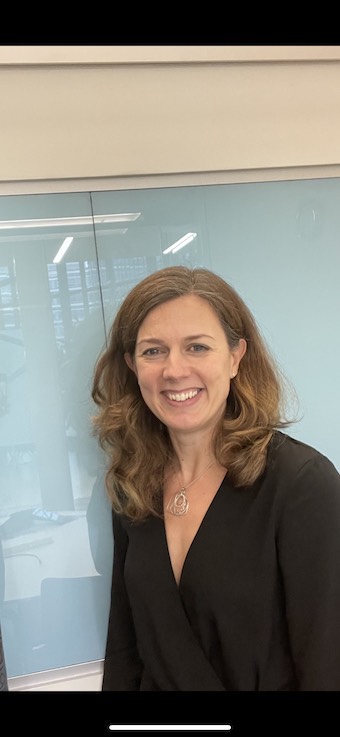Caroline Waterworth is a senior manager at KPMG, one of the largest professional services companies in the world, providing audit, tax and advisory services. After building a career within law, she decided to pivot away from the sector, so pursued an MBA at the University of Sussex Business School. Waterworth believes her business education journey enabled her to both pursue her professional interests and identify an exciting new career path
Can you tell us a little bit about yourself and your career to date?
After graduating from Cambridge University with an BA (Hons) in Law, I followed a conventional route to qualification as a lawyer at a city law firm. I then took the decision to requalify to the legal bar a few years later with two toddlers in tow and became a self-employed barrister in London with a focus on commercial, business and financial matters.
After a change in my family circumstances, I chose to move to an in-house role at Nokia where I again combined the law with business. It was at Nokia that I realised that business could be creative and innovative: as a litigation lawyer, people brought me things when they were broken, which equates to a small percentage of the total life-cycle of what business is about.
Please explain your current role
As a senior manager at KPMG, I support a wide range of private enterprise companies with their transformation and improvement journeys across their entire operating model (ie people, process, service delivery model, governance, technology and performance). The companies can be start-ups, emerging giants or established entities.
Where and when did you achieve your MBA?
I studied for my MBA at the University of Sussex Business School full-time between 2017 and 2018, graduating with a distinction and second in my class.
Why did you want to study for an MBA in the first instance? And why did you choose to do an MBA at this particular school?
At Nokia, I decided that I wanted to reposition my career in the business advisory space and pivot away from the ‘lawyer’ title that had accompanied me for 18 years – I had CEO aspirations rather than CLO. I researched how I might study and where. For the where, I evaluated cost, ranking of the school, distance from home and teaching hours versus private study. Being Brighton-based, the University of Sussex Business School was an obvious long-list option. As I undertook my analysis, the University of Sussex Business School scored incredibly well on all fronts and having met the staff, I was confident that it would be a good fit for my aims and future aspirations.
What is the most interesting thing you learnt from your MBA?
My MBA re-ignited my passion for learning and my curiosity. Those remain with me and I ensure I nurture them as they are such a key part of what I do, how I do it and who I am.
What were some of the challenges you faced when studying for an MBA?
I was at a different life stage to a number of my class-mates and whilst on the face of it, that could have been a point of separation, I found the set up and the teaching methods lent themselves to cohesion and my peers were equally keen to learn and engage.
How has the MBA made a difference to your career path and leadership journey?
Without my MBA, I think I would be a frustrated lawyer with a strong leaning towards the commercial component of a business, but without the credibility and breadth of knowledge that others would have in the leadership space. Instead, since starting my MBA I have established a start-up, worked in the public sector (co-directing a local authority through the Covid pandemic) and joined a Big 4 consultancy business. That breadth of experience helps satisfy my personal curiosity and allows me to support a wide range of clients and colleagues. I have been able to learn from a great range of people, particularly in my current role, where I am supported to grow and develop my own leadership approach
In what interesting ways have you taken what you have learnt in your MBA into the organisation for which you work?
In addition to the obvious core aspects around finance, strategy and leadership, part of my MBA was a dissertation on Gender, networking and promotion in law firms. The underlying principles of that research and my conclusions apply equally to other professional service firms, such as KPMG. I have been able to look at some of our internal approaches through the lens of that research and colleagues have been incredibly receptive to my observations. It also gives me additional insight that I can share with our legal sector clients who are currently dealing with a war on talent as swathes of qualified lawyers exit the profession, creating a shortage of suitable skilled candidates.
What advice would you give to someone who is thinking about studying for an MBA?
If you are even mildly tempted, do it – you won’t regret it.
What are the next steps for you on your career journey?
I am looking forward to continuing my career at KPMG; its approach, aims and ethos very much align with my personal reasons for studying for an MBA. I can’t wait to see where my curiosity can take me.




